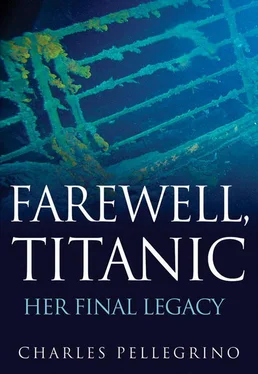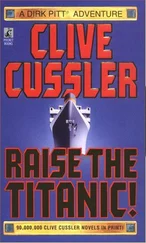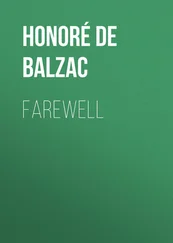Young Madeline was excited beyond imagining when her mother came up to London from Southampton to tell her that they would finally be reunited aboard the Titanic as traveling companions of a Colgate cousin on a trip to the United States. They would henceforth be living in Bennington, Vermont, and then in a new estate on Manhattan’s West 57th Street.
The Mellingers’ assignment to a second-class cabin proved no obstacle to dining invitations in first class, because their traveling companion, C. C. Jones, seemed to take a special liking to Madeline’s educated and formerly wealthy mother. More than fifty years later, Madeline would tell historian Walter Lord that she suspected Jones wanted to become her stepfather.
Madeline was at first enchanted by the elegantly dressed people, intricate woodwork, and engraved glass of the dining areas, and then she became enchanted by Jones. “He came to our table—which was reserved,” she would say later. “He had on a fur coat, full length, and I had never seen such a thing on a man. He gave me a golden sovereign (another first). Sunday, before lunch, he came over to our cabin in second class to bring pictures of lovely Bennington in spring, and to tell us what to do upon landing. We never saw him again alive.”
The Mellingers’ cabin was on the same deck as the open portholes of the Thayer and the Chambers staterooms, just behind the second-class dining saloon, on the starboard side. The iceberg passed directly outside the Mellingers’ porthole. Elizabeth’s hearing was very poor, but she felt the change in the engines below and possibly the straining of the propeller shafts, the last boulders of ice falling off the berg and bouncing against the starboard hull. Madeline was awakened by the sudden commotion of her mother springing from the lower bunk and climbing on top of a couch beneath the porthole. Elizabeth looked outside, saw nothing, and told Madeline she might as well go back to sleep.
• • •
In the same general region of second class, a multilingual Japanese man named Masabumi Hosono was dozing off at 11:40, having just completed a lucrative but long and distressing assignment helping Japan’s allies in Russia to streamline the all but completely dysfunctional Siberian Railway. The Titanic was only the second leg of his long journey home, and even though Hosono could have afforded to seek greater comfort in one of the first-class cabins, nonwhites were unwelcome there, in accordance with the rules of the time. It did not seem to matter, for on the Titanic , second-class accommodations were the equivalent of first-class ones on many other liners.
Besides, Hosono had already seen enough inequities in Russia to consider himself exceedingly lucky. The rich lived in rooms decorated with gold, lapis, and the finest Baltic amber. There was no second class in Russia—and very little left over for the so-called underclass. Hosono had seen people walking barefoot during the incomparably cold Siberian winter. In boardinghouses, the occasional renting out of hallway spaces by the innkeepers meant the difference between freezing and survival.
Hosono had seen men trying to live a week on no more sustenance than lumps of sugar carried in their pockets. He did not need to know that in a corner of the Titanic ’s third-class section, a steamer trunk bearing a carefully packed diary would preserve the record of a fellow world traveler named Howard Irwin, including his brief friendship with a Russian expatriate named Vladimir Lenin. As Hosono began drifting off to sleep, he already knew that a Leninesque revolution was in the air. He did not have to read Irwin’s diary to confirm this.
Hosono did not understand the slight sensation of the floor rattling, as though the Titanic were a train riding over a series of split rail fasteners or some other defect in a long stretch of track. He guessed that it was nothing more than an engine cylinder encountering some difficulty wearing into its seatings. He did not hear a distinct crash, so he did not even consider the possibility of danger. He decided to ignore the rattling floor and let himself drift off more fully into sleep.
• • •
Quartered in the same cluster of suites, twenty-six-year-old architect and engineer Joseph Laroche was already in deep sleep. He was the cousin of soon-to-be Haitian president Tancrède Auguste and the son of the wealthy businessman Raoul Auguste. He was also one of the Titanic ’s few passengers of African ancestry and the only such passenger married to a white woman, named Juliette. The engineer was traveling with his family to New York on the first leg of his return trip to Haiti. At 11:40, the Laroches’ two little girls, Simonne and Louise, ages one and three, were asleep on the second-class cabin’s couch, which had been designed for conversion into a bed.
Laroche had found the French relatively tolerant of interracial marriage, but in 1912 the friendliness and freethinking attitudes of the people seemed to end where competition in the job market began. Even when he could find work, Laroche too often received wages lower than the younger and less educated engineers, ostensibly because he was younger and less experienced. Juliette’s father owned a wine business in France and had tried to assist the couple financially, but Joseph wanted to provide for his family on his own merits.
Laroche’s initial plan, to be a successful engineer in France, was clearly not working. He was a believer in the old saying “If the first plan does not work, you’ve got to have another plan.” Nature, of course, had a third plan he had never anticipated, although: he, Juliette, and little Simonne and Louise apparently slept through the iceberg’s passing without noticing anything at all.
• • •
Above, in the first-class smoking room, passenger Spencer Silverthorne had settled into a large leather armchair and was browsing through a copy of the Virginian when he heard a series of loud thuds along the side of the ship. The loudest and nearest of the thuds came almost thirteen seconds after fireman Thompson was heaved out of his bunk, near the point of the bow. On the higher decks, and more than six hundred feet behind Thompson, the impact was not strong enough to splash a drink out of Silverthorne’s glass or to upset a card game nearby, although it did shake his chair.
“We’ve hit something!” he cried, then he dashed outside just in time to see the iceberg gliding behind the ship, higher than the boat deck and still shedding “tons and tons of ice.” There was now a widening margin of water between the cliff of ice and the wall of steel. Nonetheless, the avalanche continued. Silverthorne witnessed huge pieces of the cliff tumbling off and crashing into the sea as the berg appeared to be headed astern and away from the glare of the Titanic ’s lights.
• • •
Atop the after-bridge, near the very end of the Titanic ’s stern, quartermaster George Rowe had noticed the temperature dropping so quickly around 11 p.m. that whatever moisture was in the air through which he was steaming had begun crystallizing into what he called “whiskers round the light” — “that is,” he would later write to Walter Lord, “[I saw] very minute splinters of ice like myriads of coloured lights” forming halos around deck lamps. Rowe could not wait for the man assigned to the middle watch to arrive at midnight so he could get out of the intense cold.
At 11:40, Rowe was struck by a curious motion of the deck, an interruption of the Titanic’ s otherwise steady glide through water that was dead calm and smooth enough to be full of reflected stars. It felt to him as though the ship were pulling alongside a dock wall—rather heavily, yet still with so slight a jar that he might not have noticed it at all had the North Atlantic been its usual turbulent self.
Читать дальше











